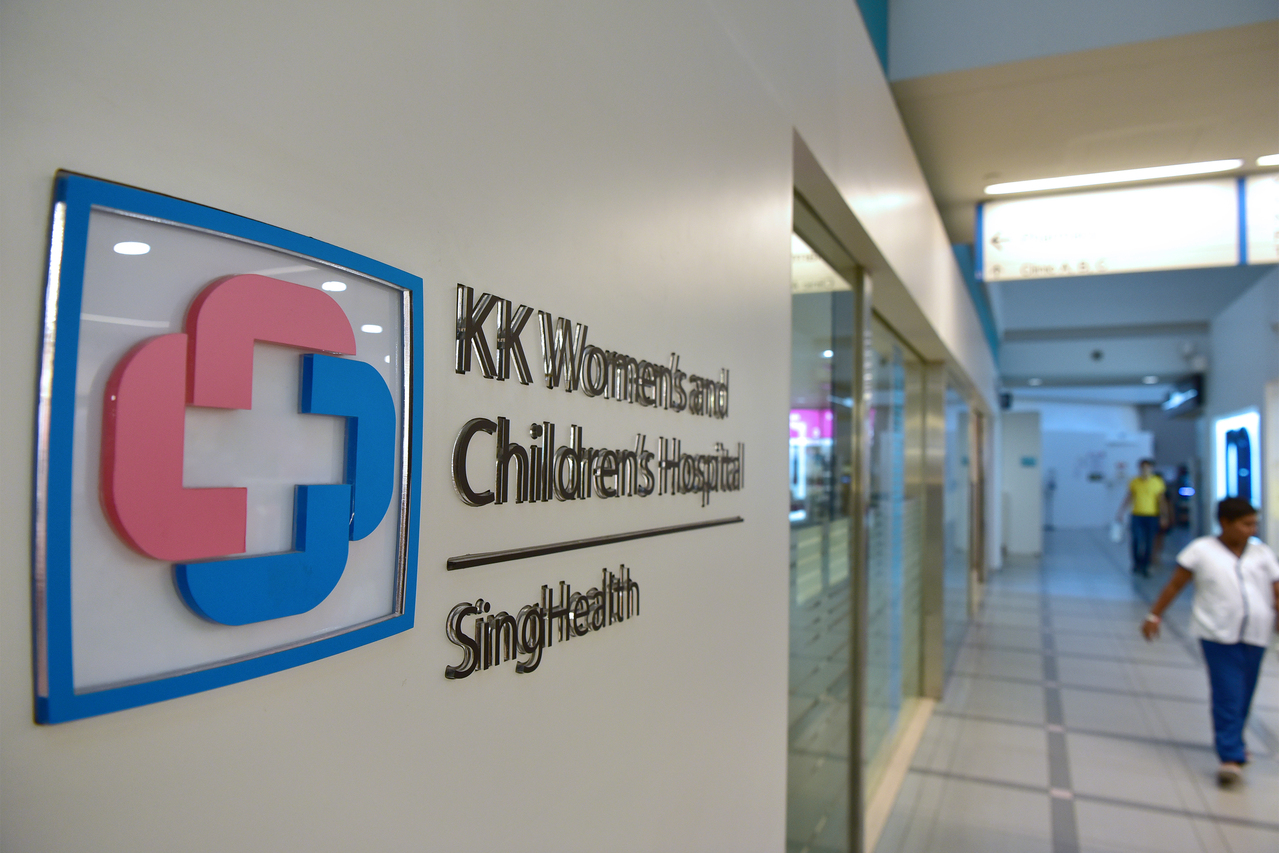S’pore doctors were looking out for inflammation linked to Covid-19 in children as early as 2020
Sign up now: Get ST's newsletters delivered to your inbox

The doctors from KK Women's and Children's Hospital said there was no significant increase in number of children with symptoms of Kawasaki disease.
PHOTO: ST FILE
Follow topic:
SINGAPORE - Paediatricians in Singapore appear to have been tracking a rare and severe inflammatory syndrome that affects children infected with Covid-19 since early 2020.
In a letter to the Journal of Paediatrics in November 2020, a group of four doctors from KK Women's and Children's Hospital said there was no significant increase in the number of children with symptoms of Kawasaki disease during the early months of the Covid-19 pandemic.
They had compared the rate of incidence between January 2017 and December 2019 with the period between January 2020 and April 2020, in response to an article about 33 children with multi-system inflammatory syndrome in children (MIS-C) in New York City.
Kawasaki disease, which results in inflammation in blood vessels throughout the body and mostly affects children younger than five years old, has symptoms resembling those of MIS-C.
The Ministry of Health (MOH) announced on Saturday (Nov 6) that four children in Singapore had developed MIS-C out of some 8,000 paediatric Covid-19 patients.
A four-year-old boy is in the children's intensive care unit, with his breathing supported by mechanical ventilation.
The others are a two-month-old girl, who is stable and does not need oxygen support, and two boys, aged three and eight, who have recovered and have been discharged.
MIS-C is a condition where different body parts, including the heart, lungs, kidney, brain and eyes, can become inflamed.
More than a year on, research is still ongoing into MIS-C, with many questions about it still yet to be answered.
It typically develops about two to six weeks after a child has been infected with Covid-19, according to a study published in The Lancet medical journal in May this year.
Some children develop MIS-C after discharge from hospital for the initial infection.
In other cases, children who never needed to be admitted for the initial infection had to be admitted instead for MIS-C.
Infectious diseases expert Leong Hoe Nam called MIS-C "an abnormal, uncharacterised (and) little-known phenomenon" that can cause permanent organ damage.
"Put simply, it is an inappropriate exuberant immune response for a seemingly innocuous viral infection for any other child," he told The Straits Times.
Dr Leong added that the delayed onset is due to the amount of time needed for an immune response against Covid-19 to develop, akin to how someone is fully vaccinated only two weeks after they have been injected with the vaccine.
Another Lancet study published in November 2020 observed a spike in inflammatory illness four to six weeks after spikes in Covid-19 cases in Europe and the United States.
Dr Liew Woei Kang, who specialises in paediatric immunology, said obesity is the main risk factor for MIS-C identified thus far.
Certain races, such as Black people in the US, are over-represented in MIS-C numbers as well.
Though its cause remains unknown, MIS-C is frequently seen after recent Covid-19 infection and hence thought to be a post-infectious immune phenomenon, said Dr Liew.
MOH on Saturday said that the symptoms for MIS-C include persistent fever above 38.5 deg C for three days or more, with difficulty breathing, headache, neck swelling, rash, swollen hands and feet or abdominal pain.
To treat MIS-C, doctors may administer steroids, aspirin and intravenous gamma globulin to control the "exuberant" immune response and its effects on the child, said Dr Leong.
Dr Liew, a consultant paediatrician at the Paediatric Allergy Immunology Rheumatology Centre, said: "The treatment of MIS-C is largely supportive, targeting the organs that have been affected.
"As a large percentage of MIS-C patients have low blood pressure, many require intensive care unit admission and cardiac medications."
MOH said on Saturday that MIS-C has symptoms similar to Kawasaki disease, which has been linked to various viral or bacterial infections and occurs in 150 to 200 children a year in Singapore.
Dr Liew noted that both MIS-C and Kawasaki disease may share overlapping clinical features. However, he added that studies in the US indicate MIS-C can affect a wider age range.
Children with MIS-C also tend to have more prominent gastrointestinal and neurological symptoms, present more frequently with low blood pressure, and are more likely to display cardiac dysfunction than children with Kawasaki disease.
He said: "The key signature of MIS-C is the presence of excessive and inappropriate inflammation of the body which results in adverse effects in multiple organs."
Dr Liew added that while there are similarities between MIS-C and severe Covid-19 infection, there are also clear differences, and doctors are continuing to learn about both these new diseases.
On whether Covid-19 vaccinations for children should be stepped up, Dr Leong, an infectious diseases specialist at Rophi Clinic, said: "We should wait for the Health Sciences Authority's (full) approval.
"Trust our own doctors to make an informed recommendation on the suitability for children."
Dr Liew said parents should learn about the symptoms of MIS-C, which includes persistent fever, rash, red eyes, abdominal pain, vomiting, diarrhoea, giddiness or breathlessness.
"While these are non-specific symptoms and can be present in common infections, red flags should be raised if the child is unwell and has recently recovered from Covid-19 infection.
"The best measure to prevent MIS-C is to avoid contracting Covid-19 infection. Thus, appropriate personal hygiene, wearing mask outdoors and social distancing measures are recommended."

